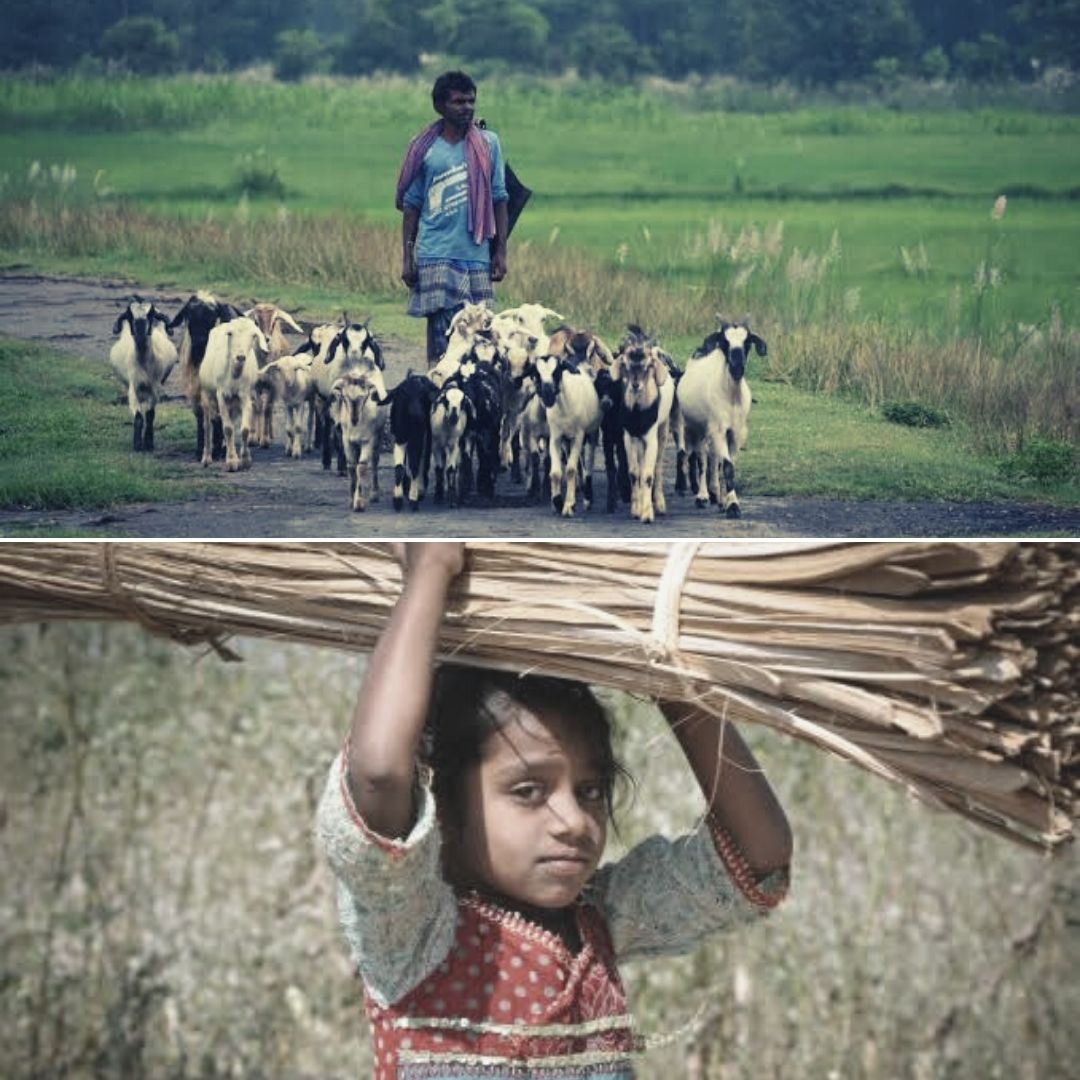Children From Nashik's Tribal Regions Forced Into Child Labour To Goatherds For Rs 10,000
Writer: Laxmi Mohan Kumar
She is an aspiring journalist in the process of learning and unlearning many things. Always up for discussions on everything from popular culture to politics.
Maharashtra, 14 Sep 2022 9:18 AM GMT | Updated 14 Sep 2022 9:26 AM GMT
Editor : Snehadri Sarkar |
While he is a massive sports fanatic, his interest also lies in mainstream news and nitpicking trending and less talked about everyday issues.
Creatives : Laxmi Mohan Kumar
She is an aspiring journalist in the process of learning and unlearning many things. Always up for discussions on everything from popular culture to politics.
At least eleven children from the tribal families of Nashik were found to be a victim of the Bonded Labour System. They were sent off by their parents in return for ₹10,000 to revive their pandemic-struck livelihoods.
Members from the tribal communities in Nashik that were facing a livelihood crisis due to the COVID-19 pandemic reportedly "handed over" their children to goatherds for labour work that would help them earn up to ₹10,000 a year. The rural police claim to have rescued about eight such children, who were involved in bonded labour, from Ahmednagar in Maharashtra.
The child labour incidents were brought to light after a young girl labourer was found dead in the month of August. Two arrests have also been made on the same grounds, and those detained were slapped with charges under the Bonded Labour System (Abolition) Act-1976.
The Incident That Triggered An Investigation
An eleven-year-old girl working as a labourer was found lying unconscious outside a community camp in the Ghoti area on Sinnar road. The police and her relatives rushed her to the hospital, where she was declared dead during treatment.
A First Investigation Report (FIR) was filed by the Ghoti police against unidentified persons under Indian Penal Code (IPC) Section 307 (attempt to murder) soon after the girl was found unconscious. In the later stages of the findings, the FIR was converted to a case of murder, under which two people had already been arrested. They now await a medically reviewed final cause of death.
This incident, which took place on September 3, nudged the police to begin an inquiry, which traced back to the systemic problem of child labour. The inquiry opened up to cases similar to that of the deceased eleven-year-old and revealed that many children, including the deceased's 10-year-old brother, were given off to goatherds in Ahmednagar for labour.
At least 11 children, aged 6 to 15, were given away by their families to goatherds in Ahmednagar. These children used to return to their families about once or twice a year.
10,000 And A Goat For A Child's Labour
The tribal families lost their only sources of income during the pandemic and did not have sufficient money, even for adequate food. Prior to the pandemic, the families were involved in a largely unorganised sector and took up odd jobs at brick kilns, sugarcane farms, and so on.
The families said that every adult was being paid about ₹3,000-5,000 per month, along with food and accommodation. During the pandemic, the children were counted upon to sustain their livelihood as many employers found it logistically affordable to employ children instead of adults.
Children were being paid barely ₹10,000 a year and required smaller places to stay. Detailed investigations into the matter revealed that the parents were given a goat or sheep additionally to the ₹10,000 in return for their child's labour.
There are several agents who would act as middlemen and facilitate these transactions. Police are now on the lookout for the agents involved in the cases as well as the goatherds who exploited the minors as labourers.
A report by the New Indian Express also said that the officials, with the help of non-governmental organisations, continue to look for more children who are trapped under bonded labour.
Also Read: 'Every Child In India Will Be Free, Safe, And Educated By 2047': Nobel Laureate Kailash Satyarthi
 All section
All section















